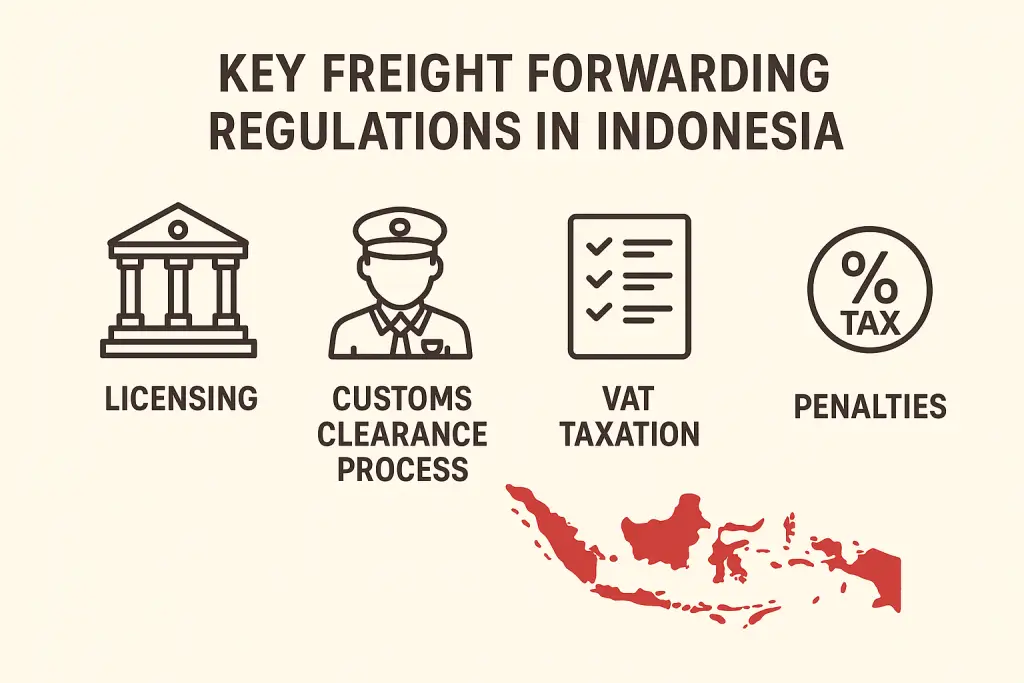
Freight forwarding in Indonesia is governed by a complex framework of regulations designed to ensure the safety, legality, and efficiency of goods transportation. For companies engaged in shipping, understanding and complying with these regulations is critical to avoid delays, penalties, or confiscation.
What Is Freight Forwarding Under Indonesian Law?
According to Indonesian Ministerial Regulation Number 49 of 2017 concerning Transportation Services, freight forwarding is defined as a business activity that manages all necessary steps to ensure goods are shipped from sender to recipient through land, sea, or air transport. This includes document preparation, customs clearance, booking transport space, and cargo handling.
Licensing and Business Requirements
Companies operating as freight forwarders must obtain official licenses (Izin Usaha Jasa Pengurusan Transportasi). This license confirms they meet technical and financial criteria stipulated by the Indonesian Transportation Ministry.
Taxation and Service Charges
The government considers freight forwarding services taxable. Based on tax regulations such as the Ministry of Finance Regulation No. 75/PMK.03/2010 and updates in 2022, forwarding service providers must charge Value Added Tax (VAT) on their services. Proper invoicing and document issuance are mandatory for tax compliance.
Customs Clearance Compliance
Customs clearance is arguably the most regulation-intensive part of freight forwarding. Goods moving in and out of Indonesia require declarations to the Directorate General of Customs and Excise, governed by Law No. 17/2006.
Freight forwarders or their customs brokers must handle:
-
Accurate classification of goods under the Harmonized System (HS) codes
-
Proper submission of export/import declarations (PEB/PIB)
-
Verification of permits, certificates of origin, and other supporting documents
-
Coordination with customs inspections based on risk profiling (green, yellow, red line)
Penalties for Non-compliance
Failure to comply with freight forwarding and customs regulations can lead to heavy fines, delays, and seizure of goods. Hence, hiring knowledgeable and licensed freight forwarders ensures risk is minimized and shipments are processed swiftly.
Key Regulatory Bodies in Indonesia
-
Ministry of Transportation (Kementerian Perhubungan)
-
Directorate General of Customs and Excise (Direktorat Jenderal Bea dan Cukai)
-
Ministry of Finance for tax regulations
Alfian Logistics Commitment to Compliance
Alfian Logistics strictly adheres to all applicable laws and regulations, with an expert team handling customs clearance and documentation efficiently to ensure timely delivery and worry-free shipping.
(Internal Link: Learn about our customs clearance services)
External References
-
Detailed article on freight forwarding tax and regulation: KlikPajak Blog
-
Comprehensive customs clearance guide: Uniair Cargo Customs Clearance
-
Ministry of Transportation Regulation No. 49/2017: Official PDF

